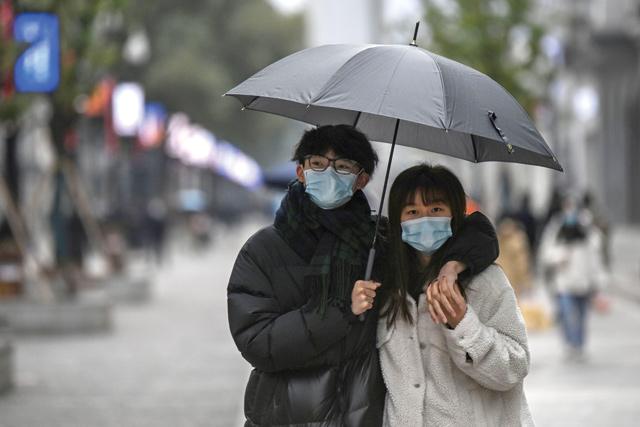- International News
- Thu-2021-01-21 | 03:37 pm

Nayrouz News Agency :
1.6 million residents were banned from leaving Beijing on Wednesday as two COVID-19 cases linked to a new UK virus variant were found in the Chinese capital.
China has lauded its response to the pandemic, which emerged in the central city of Wuhan just over a year ago but has been broadly brought to heel, officially killing fewer than 5,000 Chinese people.
Authorities have been swift to stamp out local clusters of cases with lockdowns, mass testing regimes and travel restrictions.
With the Lunar New Year Holiday looming, officials had been keen to avoid an outbreak in Beijing, the heart of political power.
But a handful of cases have been detected in the capital in recent days, with six more reported Wednesday in southern Daxing district.
Officials said that the two cases in Daxing were linked to a UK variant believed to be a more transmissible form of the virus and were first detected on Sunday.
The cases had "no genetic correlation with previously reported local cases and imported cases in Beijing", the head of the Beijing health authority Pang Xinghuo told reporters, but are "considered to be variants of the new coronavirus discovered in the UK."
All 1.6 million residents of Daxing are barred from leaving Beijing unless they have received special permission from the authorities and tested negative for COVID-19 in the past three days, the district said.
Residents of five neighbourhoods, where the recent cases were detected, were ordered to remain indoors.
Meetings of 50 or more people in the district have been banned, while "weddings should be postponed and funerals simplified," the Daxing government said.
It also ordered all kindergarten, primary and secondary students in the district to study at home.
Daxing includes one of the city's two international airports.
Northern outbreaks
The latest restrictions in the capital come as the government races to tackle the highest number of cases in nearly a year, after the new coronavirus was first detected in China in late 2019.
The country had largely brought the virus under control even as the rest of the world struggles with mounting deaths and overburdened hospitals.
But a spate of small, localised outbreaks have prompted Chinese officials to order mass testing, strict lockdowns and to prepare to move thousands into quarantine facilities to stamp out a resurgence.
China reported 103 new cases on Wednesday, including seven more in Beijing.
The outbreaks, including in neighbouring Hebei province, have put China on high alert for a potential wave of cases ahead of the upcoming Lunar New Year holiday.
Officials told reporters they expect around 40 million people a day to travel during the national festival, while the National Health Commission has said those returning home will need to show a negative COVID-19 test result done within the previous seven days.
Meanwhile, nearly three million people in north-eastern Jilin province were placed under lockdown on Monday after a travelling salesman was blamed for over a hundred infections.
Heilongjiang, another northeastern province, has reprimanded 16 officials for "not doing their duty” to prevent recent clusters of cases in the province, the provincial Communist Party newspaper Heilongjiang Daily reported on Wednesday.













